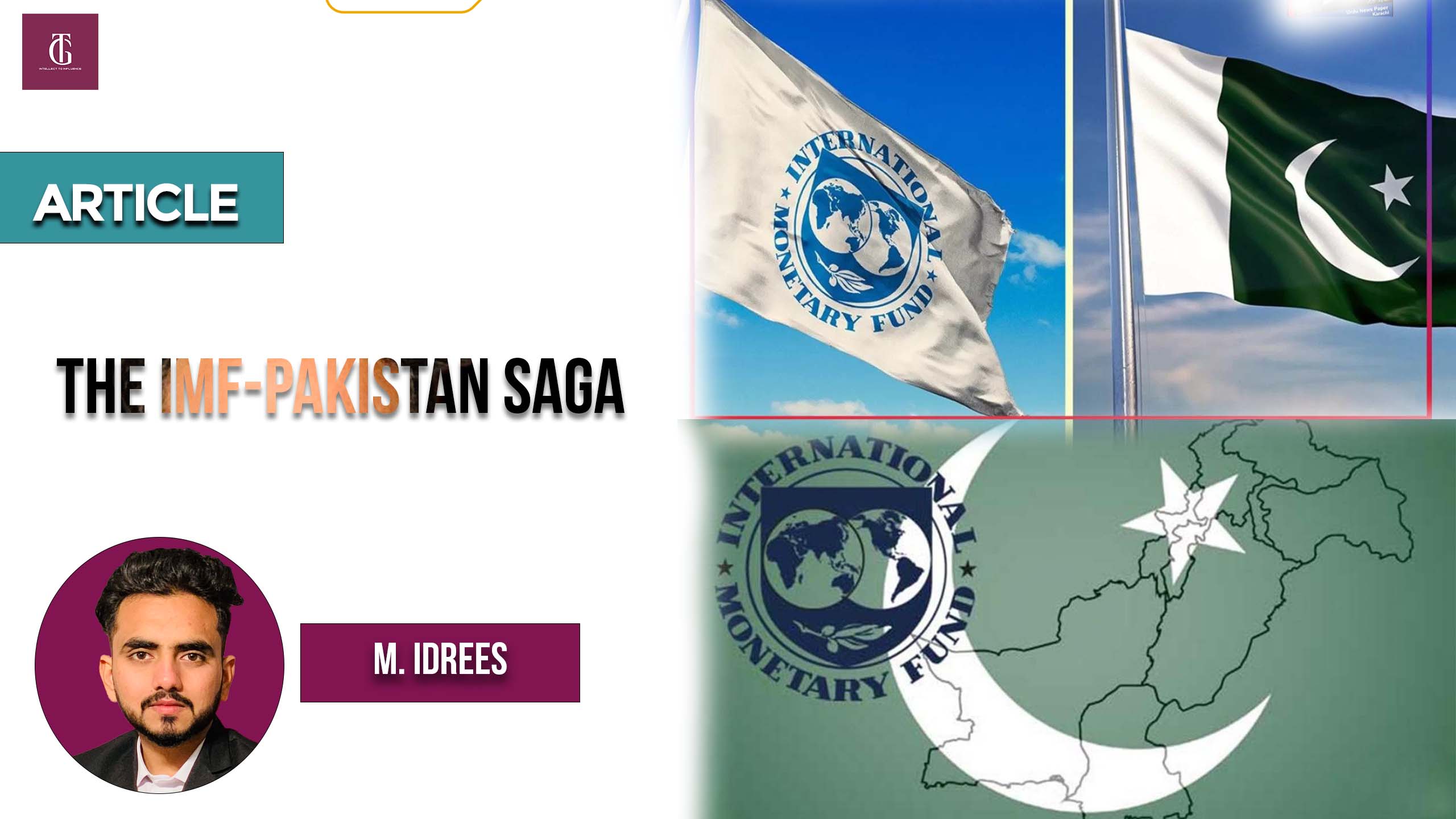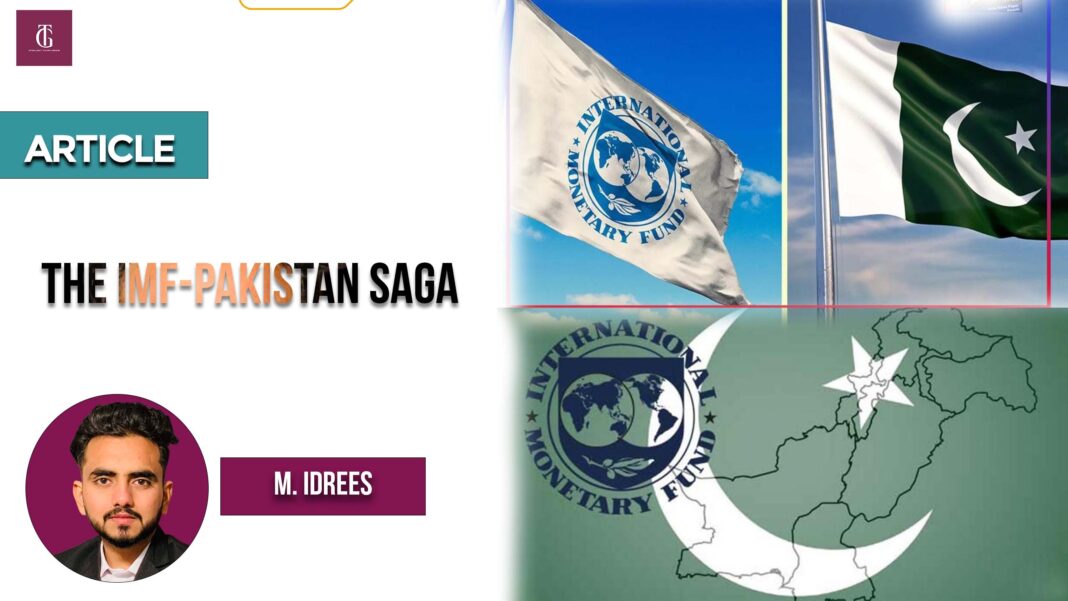
Pakistan has had a long-standing association with the International Monetary Fund (IMF), seeking its assistance on multiple occasions to address economic challenges. The decision of whether Pakistan should go to the IMF again is a complex one, as it involves weighing the potential benefits and drawbacks for the country’s economic stability and growth. In this article, we will delve into the subject and examine the historical context, the advantages, and the disadvantages of seeking IMF assistance. Furthermore, we will delve into how the IMF is exploiting Pakistan.
Pakistan’s interactions with the IMF date back to the late 1950s when it sought the Fund’s support to address its balance of payments crisis. Over the years, Pakistan has sought IMF programs to stabilize its economy, address fiscal imbalances, and implement structural reforms. These programs often come with conditionalities, requiring Pakistan to undertake certain economic and governance reforms.
One of the primary advantages of approaching the IMF is the access to financial support. The IMF provides loans to member countries facing balance of payments problems, which can help stabilize the economy and address immediate fiscal challenges. Secondly, IMF programs often aim to stabilize the macroeconomic environment by addressing fiscal deficits, controlling inflation, and restoring investor confidence. These measures can contribute to long-term economic stability and attract foreign investment.
IMF programs come with conditions that often push governments to implement crucial policy reforms. These reforms can include fiscal consolidation, structural adjustments, and improvements in governance. Such reforms can enhance economic efficiency, reduce corruption, and promote sustainable growth.
One of the main criticisms of IMF programs is the strict conditionalities attached to loans. These conditions can be challenging to implement and often require the government to make unpopular decisions such as reducing subsidies, cutting public spending, or increasing taxes. These measures can lead to social and political unrest, especially among vulnerable populations.
IMF programs sometimes advocate for contractionary fiscal policies, which may exacerbate unemployment and deepen economic inequalities. These measures can have a negative impact on the country’s most vulnerable citizens and hamper social development.
Frequent reliance on IMF assistance can create a sense of dependency on external funding and limit a country’s policy autonomy. Critics argue that the IMF’s prescriptions may not always align with a country’s unique economic circumstances, resulting in policy constraints that may not be in the best interest of the country.
Pakistan should carefully evaluate its economic situation and consider alternative sources of funding before approaching the IMF. Exploring partnerships with friendly countries, attracting foreign direct investment, and improving tax collection mechanisms are all potential avenues for financing economic development without necessarily relying on IMF assistance.
However, it is important to recognize that the IMF can provide critical financial support during times of crisis and can help stabilize the economy. Additionally, the policy reforms advocated by the IMF can address structural issues that hinder sustainable growth. Therefore, seeking IMF assistance can be a viable option if the conditions are carefully assessed, and the potential benefits outweigh the drawbacks.
The decision of whether Pakistan should go to the IMF depends on assessing economic needs, available alternatives, and the pros and cons of IMF assistance. While the IMF offers financial support and policy guidance, careful evaluation of conditionalities and economic constraints is essential. A balanced approach considering all options will be crucial for Pakistan’s long-term economic growth and development.
The second part of the article is a narrative often emerging that suggests the IMF is exploiting the country. This article aims to critically examine this perception, evaluating the role of the IMF in Pakistan, its impact on the economy, and whether the claim of exploitation holds true.
Critics argue that the IMF imposes strict conditionalities on borrowing countries, which often leads to economic hardships for the people. However, it is important to note that these conditionalities are designed to address structural weaknesses and promote economic stability. In the case of Pakistan, the most recent IMF program implemented in 2019 included conditions such as fiscal consolidation, energy sector reforms, and measures to improve revenue collection and governance.
The IMF’s emphasis on fiscal discipline and austerity measures is often criticized for resulting in reduced social spending and increased unemployment. While these measures can be challenging in the short term, they aim to restore macroeconomic stability. In the case of Pakistan, the IMF program helped reduce the fiscal deficit from 8.9% of GDP in 2018 to 4.8% in 2020, contributing to overall economic stability.
Critics claim that IMF loans increase Pakistan’s debt burden and dependency on external funding. However, it’s important to note that IMF loans form a small portion of Pakistan’s total external debt. As of June 2021, Pakistan’s external debt was around $116 billion, with IMF loans accounting for approximately $8 billion, or about 7% of the total. Therefore, solely attributing Pakistan’s debt burden to IMF loans would be inaccurate.
The IMF provides crucial financial support during times of economic distress. Since the 1980s, the IMF has approved multiple programs for Pakistan, providing significant financial assistance to stabilize the economy and address the balance of payments challenges. For instance, the most recent IMF program for Pakistan approved in 2019 included a loan of $6 billion.
IMF programs often push for necessary reforms to improve economic governance and promote sustainable growth. In the case of Pakistan, the IMF-supported program aimed to address fiscal imbalances, improve tax administration, enhance social safety nets, and strengthen the energy sector. These reforms are essential for long-term economic development and attracting foreign investment.
While concerns surrounding IMF engagement in Pakistan are valid, it is important to approach the issue with a balanced perspective. Instead of solely blaming the IMF for economic challenges, it is crucial to recognize the shared responsibility between the IMF and the domestic government in implementing policies and managing the economy. To mitigate the negative impacts and perceived exploitation, Pakistan should focus on diversifying funding sources and strengthening domestic institutions.
IMF programs frequently advocate the reforms that are required to enhance economic governance and encourage sustainable growth. The IMF-backed program in Pakistan aimed to alleviate fiscal imbalances, reform tax administration, reinforce social safety nets, and grow the energy industry. These changes are necessary for long-term economic growth and luring outside capital.
Although there are legitimate reasons for concern about IMF involvement in Pakistan, it is crucial to view the situation objectively. It is critical to understand that the IMF and the home government share responsibility for executing policies and managing the economy, rather than blaming the IMF entirely for economic difficulties. Pakistan should put its efforts into diversifying its funding sources and bolstering domestic institutions to lessen the negative effects and perceived exploitation.

Muhammad Idrees
The writer is a Student in the School of Politics and International Relations at Quaid-I-Azam University, Islamabad.






